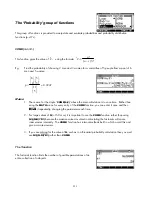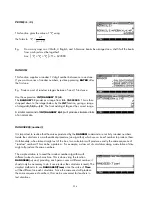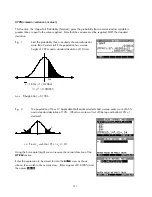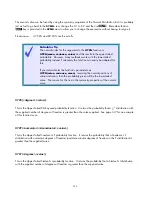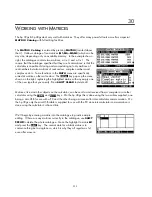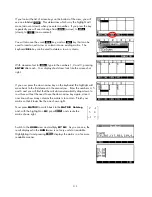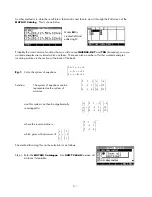
DET(<matrix>)
This function finds the determinant of a square matrix. See page 213 for
an example of its use in finding an inverse matrix.
⎡
2
3
⎤
Eg.
If
then find det(A).
A
= ⎢
⎣−
1 5
⎦
⎥
Ans:
det (A) = 2x5-3x(-1)
= 13
See also:
INVERSE
,
RREF
DOT([vector],[vector])
This function returns the dot product of two vectors. Vectors for this function are written as single row matrices.
3
⎛ ⎞
For example,
a
=
(3, 4) or
⎜ ⎟
would be written as
[3,4]
. See page 214 for a worked example.
4
⎝ ⎠
EIGENVAL(<matrix>)
This function returns the Eigenvalues in vector form for a matrix. The
values can be complex as shown right.
EIGENVV(<matrix>)
This function returns the
Eigenvectors and Eigenvalues for
a square matrix. It returns a list
variable consisting of two arrays: a matrix containing the eigenvectors and a complex vector containing the
eigenvalues.
IDENTMAT(<size>)
This function creates an n x n square matrix which is an identity matrix.
For example,
IDENTMAT(4)
would produce a 4x4 identity matrix for
use or storage. This is a function that is probably of more use to
programmers than to the average user.
196
























